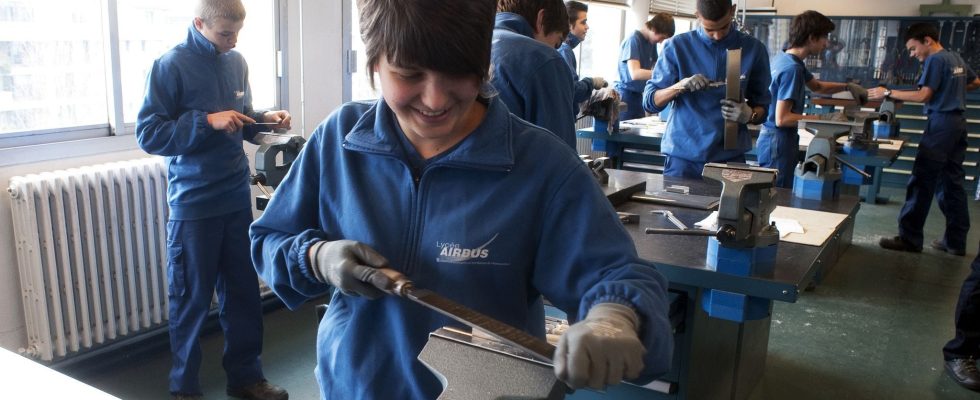Never have companies paid so much attention to issues of social and environmental responsibility. We did not have to wait for the creation of the CSR acronym, and even less so for the European Corporate Sustainability Reporting Directive (CSRD), for companies to get involved. But we must recognize a remarkable acceleration. Following the second edition of the Impact Measurement Summit, we would like to share three convictions.
The CSRD must be an opportunity for a just transition
Since January, European companies of a certain size have been subject to the CSRD directive, which will gradually harmonize and generalize reporting on sustainability information for 50,000 of them. We can rejoice in the dynamic driven by our European authorities, which is historic.
Although the extra-financial standards governing the CSRD address environmental, social and governance issues, they do not devote the same attention to each of them. The approach initiated by the CSRD requires us to ask the question of its positive and negative impacts in social matters throughout its value chain, but the rigor required on the environment by the directive, as well as the interest of investors , must not lead companies to divest from social and societal issues, to focus on what is best defined by observers: the issues of decarbonization, biodiversity, compliance or even anti-corruption.
Social and societal support is a necessary condition for environmental transformation
There are numerous economic analyzes and reports warning of the financial weight of the ecological transition on populations, businesses and public financiers. For many households, the necessary ecological transition fuels a feeling of fear of change and anxiety about the future. And these new challenges are added to other equally considerable ones: access to housing, academic success, integration, inclusion in employment, gender equality, access to health, aging well…
Also, all stakeholders, and in particular public authorities and businesses, must pay renewed attention to fragile populations and territories. For companies, this can take various forms: vigilance and investment in the training of all employees whose professions will evolve, actions with poor workers, development of an offer adapted to low-income customers, strengthened partnerships with the social economy and solidarity, joint actions with local communities. The millions of actions carried out by companies of all sizes make the difference to our life together. Especially if they are chosen carefully based on social impact criteria.
Measuring your social impact to change the system
It is the turn of the companies themselves, the actors in the field and the social and solidarity economy, alongside researchers, to take over: to experiment in the territories with measuring the impact of projects in favor of fight against precariousness or the creation of social bonds, to move away from numerical logic and focus on areas where the impact is intangible, to measure direct responses to social and societal needs while understanding why these needs persist.
Impact measurement should make it possible to better support individuals in their life journeys, rather than on one-off episodes of life accidents. For the territories, it must encourage structuring measures which give long-term results, it must be a tool serving a just transition for all categories of the population, all those for whom the fight against environmental inequalities creates new inequalities. It must encourage cooperation between actors, facilitating alignment on common objectives, while guaranteeing results for financiers.
Companies, already strongly committed, are at the heart of this transition, because technological progress alone will not be enough to resolve climate and environmental challenges. It is now time to re-emphasize the social dimension of impact measurement, considering individuals and citizens as a whole as consumers, residents, parents or employees, in order to truly measure and change the system. collectively.
Signatories:
Agnes AudierPresident of the Impact Tank, Jean-Marc BorelloChairman of the Management Board of the SOS Group, Thierry BeaudetPresident of the Economic, Social and Environmental Council, Julia Faureco-president of the Impact France Movement, Jean-Hervé LorenziFounder of the Circle of Economists, Muriel PénicaudFormer minister, company director, Bertrand WaelkaerDeputy Director General, French Development Agency, Véronique BédagueCEO Nexity, Jean-Marie TritantCEO Unibail-Rodamco-Westfield, Frédérique GiavariniGeneral Secretary of the Fnac Darty Group and General Director of Nature et Découvertes, Antoine SireDirector of BNP Paribas Engagement, Elizabeth TchoungiExecutive Director in charge of CSR, Orange Group, Antoine DenoixCEO AXA Climate, Maxime BaduelMinisterial Delegate for the Social and Solidarity Economy, Alexandre VirosExpert in transformation, ex-president of the Adecco Group, President of the Dialogues association, Arnaud MourotPresident, Play international, Bernard BazillonPartner, National Director Social and Solidarity Economy, KPMG France, Camille BockelESG Corporate Lead, AXA France, Carine de BoissonImpact Director, EDF, Damien BaldinDirector General, La France S’engage, Emmanuel BacryResearch Director at CNRS, scientific director of the Health data hub, Frederic FaureVice-President of Biocoop and President of the Biocoop Endowment Fund, Gilles Boeuf, University professor, Hubert TondeurVice-President of the National Council of the Order of Chartered Accountants, Professor holding the accounting and governance chair at the CNAM, Louis Raynaud de LageSocial Impact Expert, Bartle, Michele FiorettiResearcher Sciences Po Paris, Edmond Malinvaud Prize 2023, Orianne LedroitManaging Director Edtech France, Timothée DuvergerTeacher-researcher, Sciences Po Bordeaux, Tony BernardManaging Director of Impact Tank, Valerie DaherExecutive Director Break Poverty Foundation, Yasmine HamraouiAssociate Impact Partners
